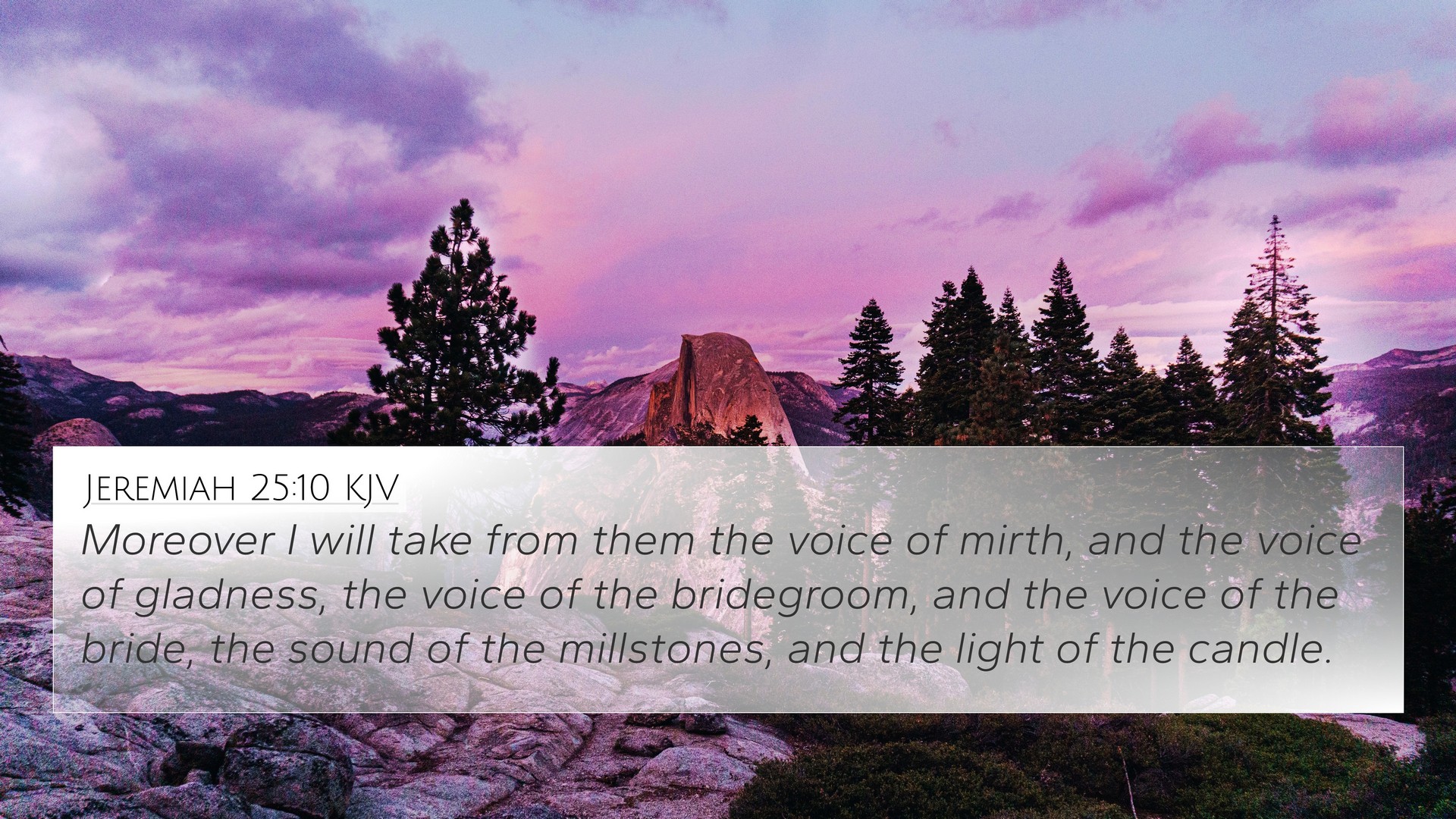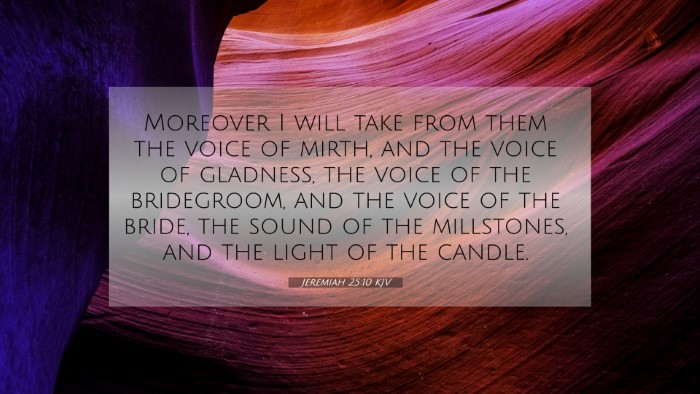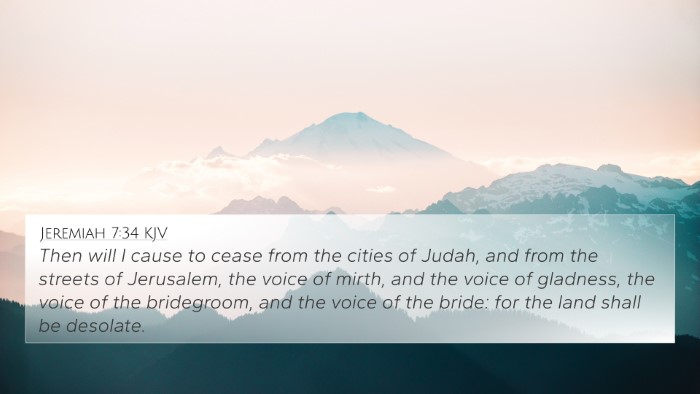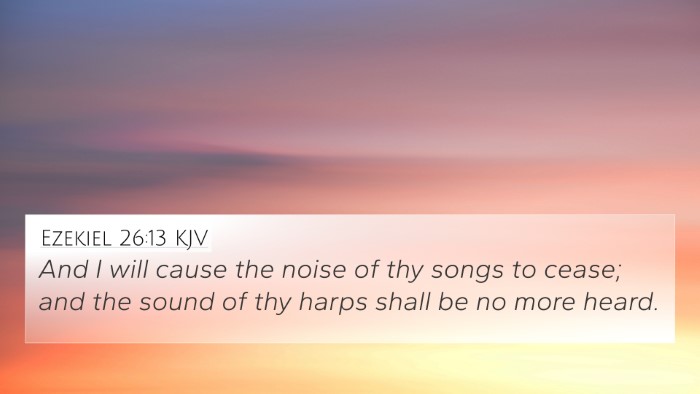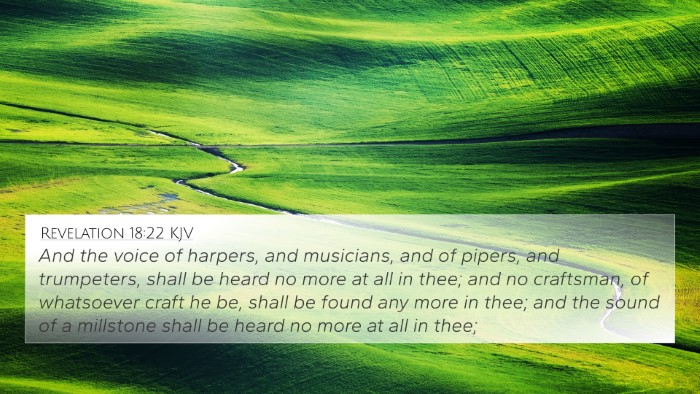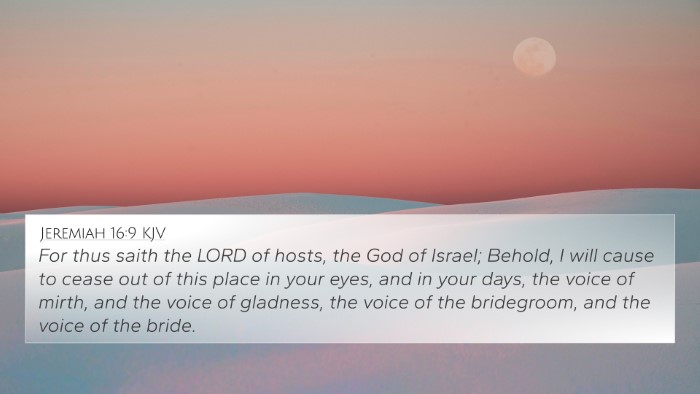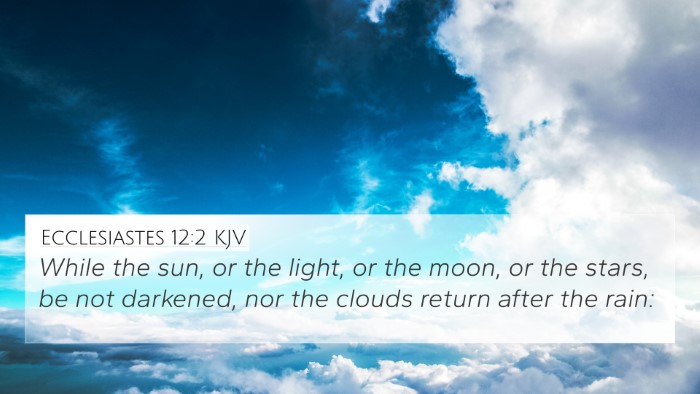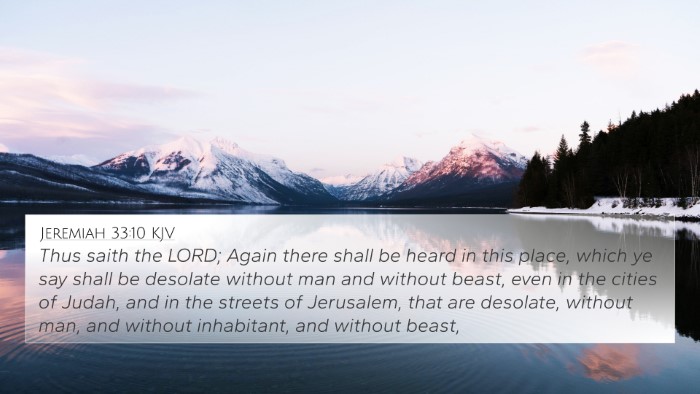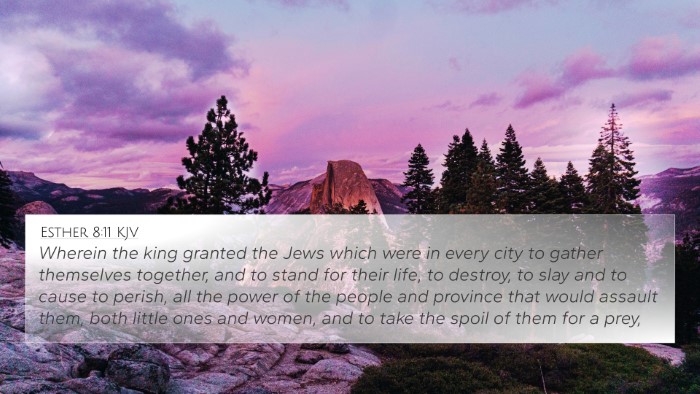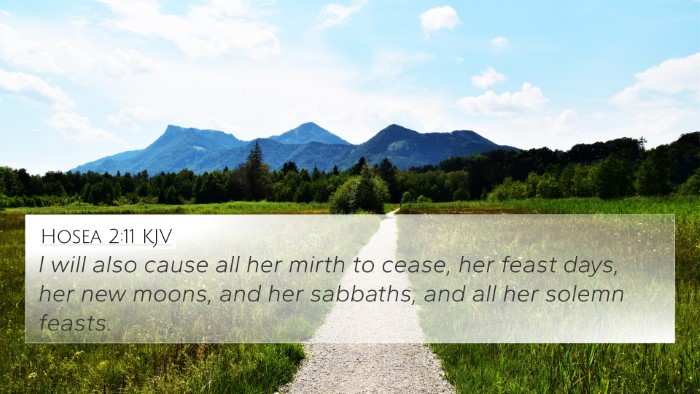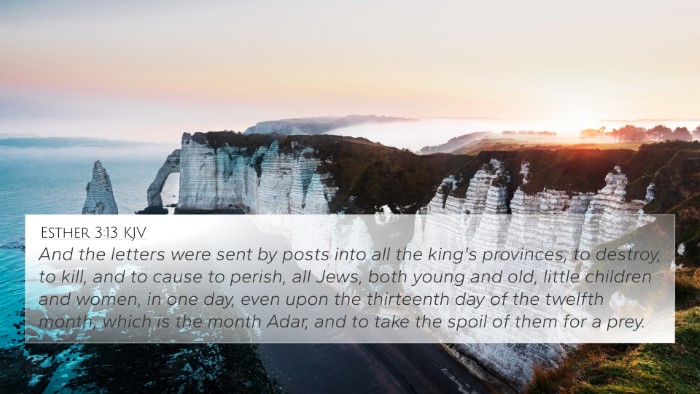Understanding Jeremiah 25:10
Jeremiah 25:10 is a profound verse within the prophetic writings of the Old Testament, where God communicates a dire message to the people of Israel through His prophet Jeremiah. This verse reads:
"And I will take from them the voice of mirth, and the voice of gladness, the voice of the bridegroom, and the voice of the bride, the sound of the millstones, and the light of the candle."
Summary of Jeremiah 25:10
This verse signifies a moment of severe judgment and desolation. In the broader context of Jeremiah's prophecies, God warns that the joy and celebration of the people will be taken away due to their persistent rebellion against Him. This is a metaphorical depiction of a coming desolation, where the sounds of daily life, happiness, and community will cease.
Insights from Public Domain Commentaries
-
Matthew Henry:
Henry emphasizes the profound implications of the judgment foretold in this verse. He notes that the voice of mirth and gladness represents the blessings and joys that come from living in accordance with God's will. The absence of these voices indicates a complete reversal of fortune for the people due to their disobedience.
-
Albert Barnes:
Barnes provides a historical context, suggesting that this prophecy was directed toward the impending Babylonian exile. The imagery of the bridegroom and bride underscores the deep personal and communal loss that Israel would experience. He highlights the solemnity of losing not just celebration but also the basic manifestations of life.
-
Adam Clarke:
Clarke interprets the voice of the bridegroom and bride as representative of the covenant community's joys. He elaborates that the loss of these voices is indicative of God withdrawing His presence and favor from them, a crucial aspect of prophetic warnings throughout the scripture.
Thematic Connections and Cross-References
Jeremiah 25:10 connects with several other Bible verses that elaborate on themes of judgment, desolation, and the withdrawal of God's presence. Below are key cross-references:
- Lamentations 5:15: "The joy of our hearts has ceased; our dance has turned into mourning."
- Isaiah 24:7: "The new wine mourns; the vine languishes; all the merry-hearted sigh."
- Revelation 18:22: "And the sound of harpists and musicians, of flute players and trumpeters, will never be heard in you again."
- Jeremiah 20:5: "And I will give all the wealth of this city, all its gains, and all its precious things,…”
- Isaiah 53:3: "He was despised and rejected by men; a man of sorrows, and acquainted with grief."
- Matthew 24:22: "And if those days had not been cut short, no human being would be saved…”
- Joel 1:10: "The field is devastated, the land mourns; for the grain is destroyed, the new wine is dried up, the oil languishes."
Comparative Bible Verse Analysis
In studying Jeremiah 25:10 in conjunction with these correlated scriptures, one can see a common thread of lamentation and the consequences of turning away from God. This participatory reading allows for a deeper understanding of the Biblical narrative about joy, suffering, and divine disfavor.
The Role of Cross-Referencing in Understanding Scripture
Using tools for Bible cross-referencing is essential in grasping the full implications of passages like Jeremiah 25:10. Cross-references help to:
- Identify thematic connections between verses.
- Explore the narrative development from Old Testament to New Testament.
- Facilitate a richer understanding of God’s continuous dealing with humanity.
- Lead to a more comprehensive study of scripture for personal reflection or sermon preparation.
Conclusion
Jeremiah 25:10 paints a sobering picture of the spiritual condition of Israel and serves as a powerful reminder of the consequences of rebellion against God. Through comparative Bible verse analysis and thematic connections highlighted in this study, readers can deepen their understanding of scripture as interconnected, focusing on God's continual narrative with His people.
Further Study Recommendations
For those interested in delving deeper into biblical texts and their interrelationships, consider utilizing a Bible concordance or Bible cross-reference guide. These tools facilitate a structured approach to cross-reference Bible study, revealing how various scriptures link and support one another in the grand tapestry of the biblical narrative.
